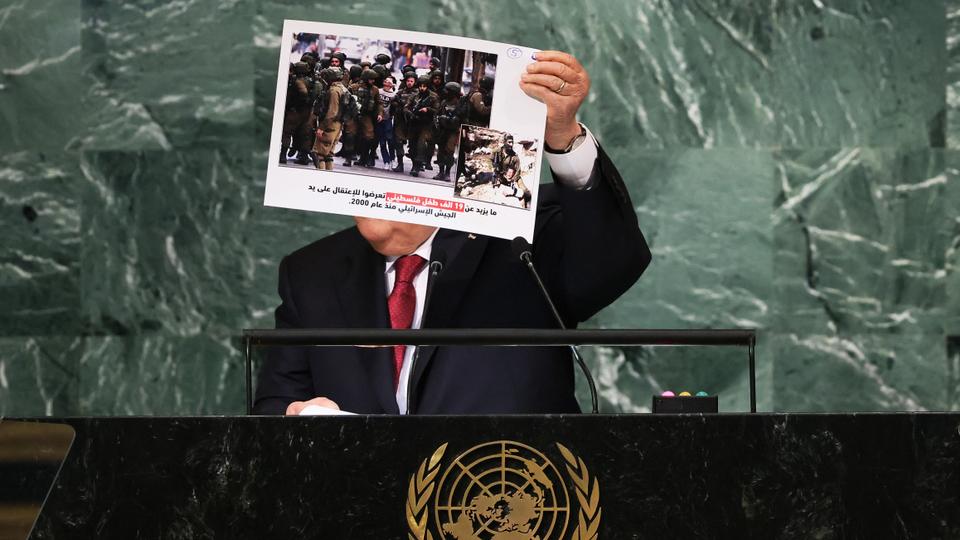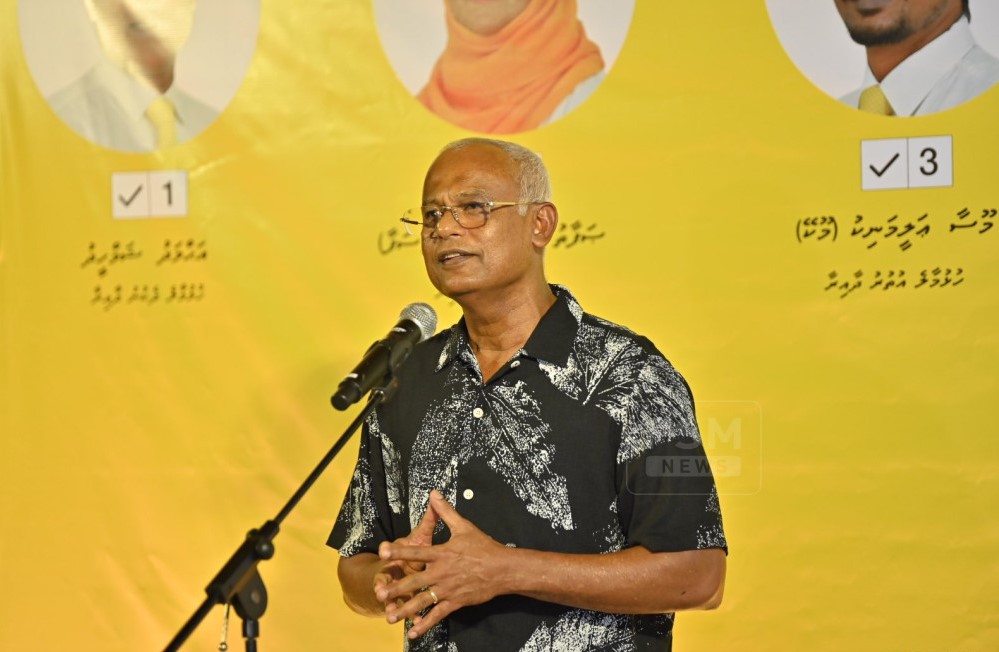Addressing hostilities thousands of kilometres apart and sharing little more than their decades of longevity, Palestine’s Abbas and Pakistan’s Sharif deliver similar messages at UN General Assembly, accusing their powerful neighbour of brutality.
Two of the world’s most persistent conflicts have punctuated debate at the UN General Assembly (UNGA), as the annual gathering of world leaders deviated from the dominating issue of the war in Ukraine.
Addressing hostilities thousands of kilometres apart and sharing little more than their decades of longevity, leaders of Palestine and Pakistan nonetheless delivered similar messages on Friday, accusing a neighbour –– Israel and India ––of brutality and urging world leaders to do more.
“Our confidence in achieving a peace based on justice and international law is waning,” Palestine’s President Mahmoud Abbas said. “Do you want to kill what remains of hope in our souls?”
With Israel’s military occupation of the West Bank in its 55th year and no substantial peace talks in 13 years, it was stark if perhaps unsurprisingly pessimistic assessment. Israel’s prime minister backed a two-state solution to the conflict in his own speech a day earlier — but there is almost no prospect for one in the near term.
READ MORE: Voiceless no more: The Russell Tribunal on Kashmir
Sharif accuses India of its own colonial ambitions
Speaking to the UNGA after Palestine’s president, Prime Minister Shehbaz Sharif of Pakistan similarly addressed a 75-years-old conflict, accusing India of a “relentless campaign of repression” in India-administered Kashmir.
Kashmir has been claimed by both sides since British rule of the subcontinent ended 75 years ago and Pakistan and India were born.
Rebels in the India-administered portion of Kashmir have been fighting New Delhi’s rule since 1989. Most Muslim Kashmiris support the rebels’ goal of uniting the territory, either under Pakistani rule or as an independent country.
India calls the Himalayan region an “integral part” of its nation and is against holding an UN-backed plebiscite there. Pakistan sees Kashmir as an unfinished business of partition and its “jugular vein.”
Sharif urged world leaders and the UN to “play their rightful role” in resolving the fight and said India “must take credible steps” too.
“At the heart of this longstanding dispute lies the denial of the inalienable right of the Kashmiri people to self-determination,” Sharif said, outlining what he called India’s “relentless campaign of repression” and “serial brutalisation” of Kashmiris.
Sharif accused India of its own colonial ambitions by trying to change Kashmir’s demographics from majority Muslim to majority Hindu.
India’s External Affairs Minister, S Jaishankar, might provide a rebuttal to Sharif when he gets his turn at the rostrum on Saturday.
READ MORE: Palestine slams Liz Truss’ ‘review’ of Israel embassy site
Debate shifts from Ukraine
After days of world leaders returning again and again to Ukraine, Sharif and Abbas provided a reminder of the other conflicts facing the international community.
Throughout the first three days and 104 leaders’ speeches, many criticised how Russia had managed to block UN action on Ukraine because of the veto it wields as a permanent member of the Security Council.
Abbas shifted the attention to the power of Israel and its allies, which he said meant no matter how many hundreds of resolutions passed, none would be implemented.
“Do you know who is protecting Israel from being held accountable? The United Nations,” he said in a speech more than three times the 15-minute limit leaders are asked to respect.
Israel’s ambassador to the UN, Joshua Lavine, issued a statement calling Abbas’ speech “a lie-filled rant.”
READ MORE: Lapid calls for ‘two-state solution’ to end Israel-Palestine conflict
Source: TRT World

 News6 days ago
News6 days ago
 News7 days ago
News7 days ago
 News7 days ago
News7 days ago
 Sports5 days ago
Sports5 days ago
 News7 days ago
News7 days ago
 World5 days ago
World5 days ago
 World6 days ago
World6 days ago
 News3 days ago
News3 days ago
























